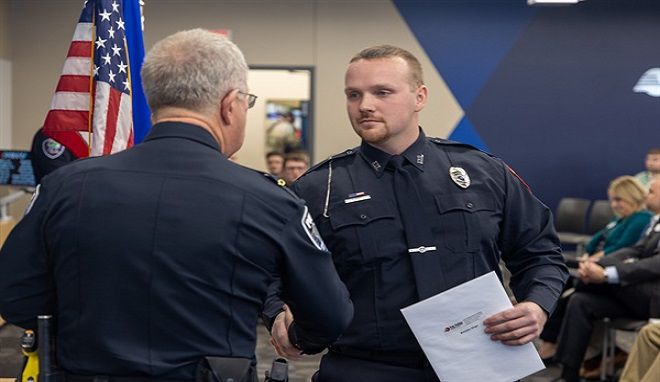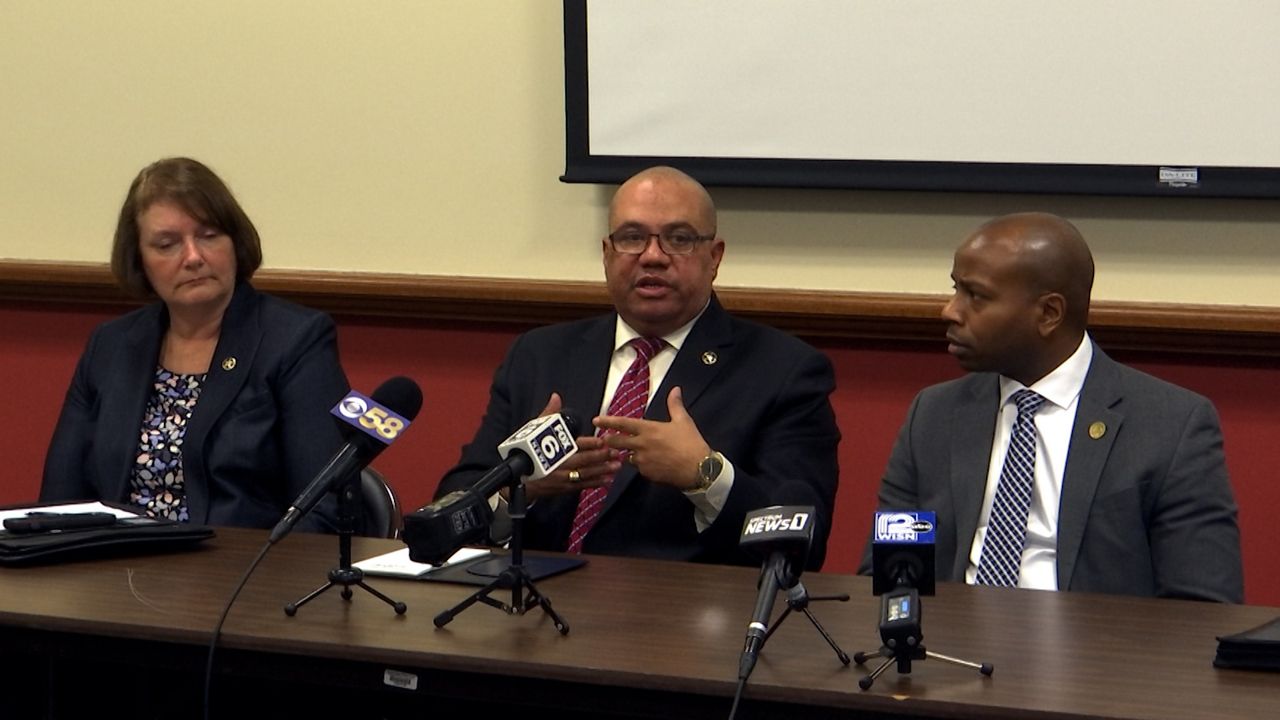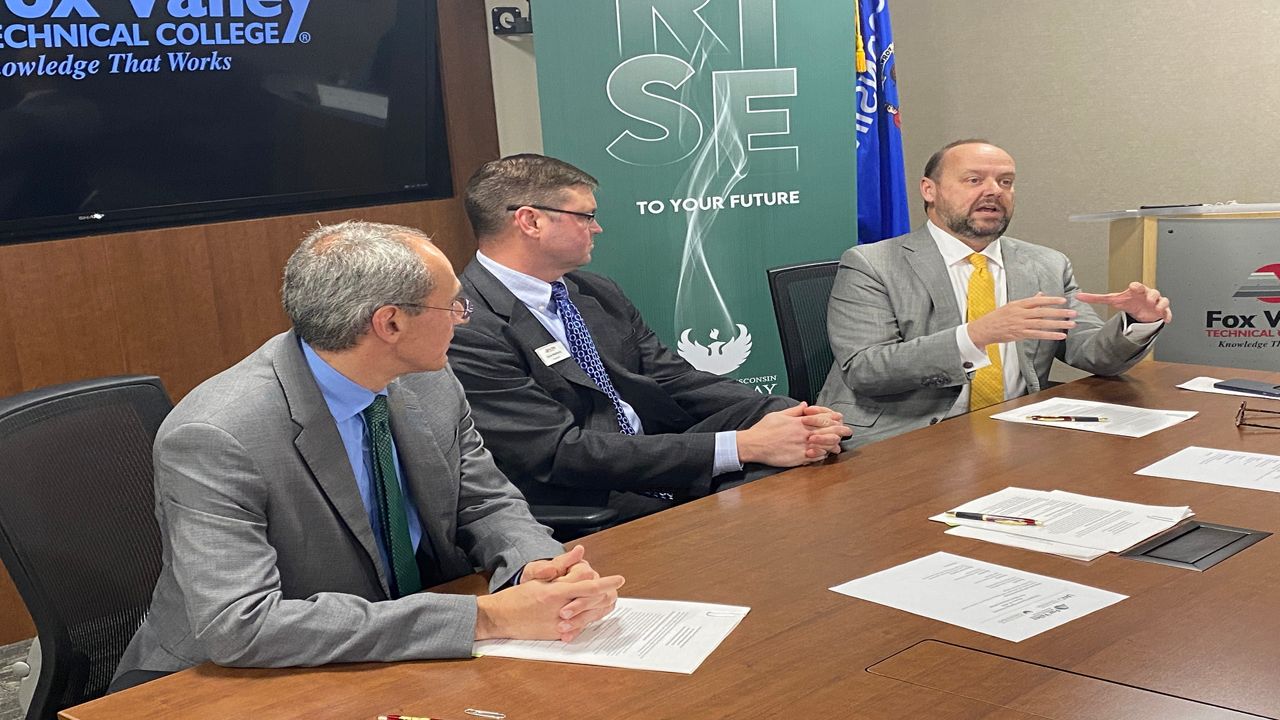APPLETON, Wis. — The police shortage in Wisconsin continues to be an ongoing issue. But in supplying police officers, there has been no shortage at Fox Valley Technical College.
“That’s unique for Fox Valley (Tech),” said Tim Hufschmid, academy director and an instructor at FVTC’s Law Enforcement Academy. “Our numbers have stayed about the same.
What You Need To Know
- Last December, in a first for FVTC, all law enforcement academy students were hired by agencies prior to graduation
- With fewer candidates around the state, more law enforcement agences are sponsoring students
- All sponsored students are required to have taken the oath of office for the agency in which they will serve
“I attend conferences with other academy directors throughout the state, and that’s not the case all over the state. We’re unique here because of one, our facility, and two, I think we’re in the central part of the state where we have a lot of people wanting to come to Fox Valley for their law enforcement training.”
In December, in a first for the college, all graduates were hired by law enforcement agencies prior to graduation. In the previous class, 29 of 30 had jobs upon graduation, according to Hufschmid.
According to the Wisconsin Department of Justice, the number of police officers in the state has steadily declined since 2008, from a high of 14,400 to fewer than 13,400 in 2022. As a sign of the times, Hufschmid said more police academy students at FVTC are being sponsored by their future employers.
Of the 23 graduates in December, 17 different law enforcement agencies represented the employers.
When he began as academy director, Hufschmid said about one quarter of his students would be sponsored. But today the script has flipped as about three quarters of the students are sponsored when they enter the academy.
“Well, it’s become very competitive,” said Grand Chute police Chief Greg Peterson. “We’re all vying for the same, very small pool of candidates. And there’s only so many quality candidates to go around.”
Peterson said candidates who are sponsored are required to have taken the oath of office for the agency in which they will serve.
“So that precludes agencies from identifying some prospective officers or employees and say, ‘Hey, I’ll sponsor you in the academy and then after the academy, I’ll try to fill one of my vacancies with your position,’” he said.
FVTC has continued its steady enrollment despite taking a road less traveled, especially in these difficult times.
“Yeah, we don’t do any open recruiting or marketing,” Hufschmid said. “I’m amazed by it. I’m grateful. We have a wonderful facility.”
The Public Safety Training Center, is used to train tactics, investigation, firefighting, technical rescue, pursuit, air disasters and more. According to FVTC, there is no other integrated training facility like it in the Midwest.
“Another thing that’s unique, not necessarily just about us, but our academies are taught by about 90% of adjunct instructors,” Hufschmid said. “Where other academies, they may have one or two instructors that teach the entire 720 hours.
“I bring in subject-matter experts from in the field who are currently working or retired officers. And I bring in the master instructors to teach our recruits. So instead of listening to three or four people throughout the entire academy, I have an average of between 30 and 40 different instructors they see during the entire 720 hours.”
The image of police work has suffered in the last couple of years, especially after George Floyd’s death and other high-profile failures caught on video.
Peterson said that has contributed to the shortage on both ends of the spectrum.
“I mean, these types of incidents leave society, in many cases, with certainly a negative impression or unfavorable view of law enforcement or policing,” he said. “So consequently, there may be fewer people gravitating to that employment.
“And we’ve also seen a trend. In many of the larger agencies in particular, it’s caused an increase in the departures. So retirements and resignations. … changing professions and becoming disillusioned. They attribute some of that to the atmosphere, if you will, where officers are viewed negatively. Whether it be political or whatever the driving force is, they’re becoming disillusioned with the job that they thought they would enjoy and they’re leaving the profession.”
Hufschmid said the students he sees today are unaffected by outside factors, and is thankful academies have not wavered in their requirements to get more students in.
“What I like is that agencies aren’t lowering their standards,” he said. “The people that are entering this field are extremely driven and dedicated. And it’s great because I can’t say that’s the way it is around the country. But in the Fox Valley, we still have great officers we can pick from”
Story idea? You can reach Mike Woods at 920-246-6321 or at: michael.t.woods1@charter.com









